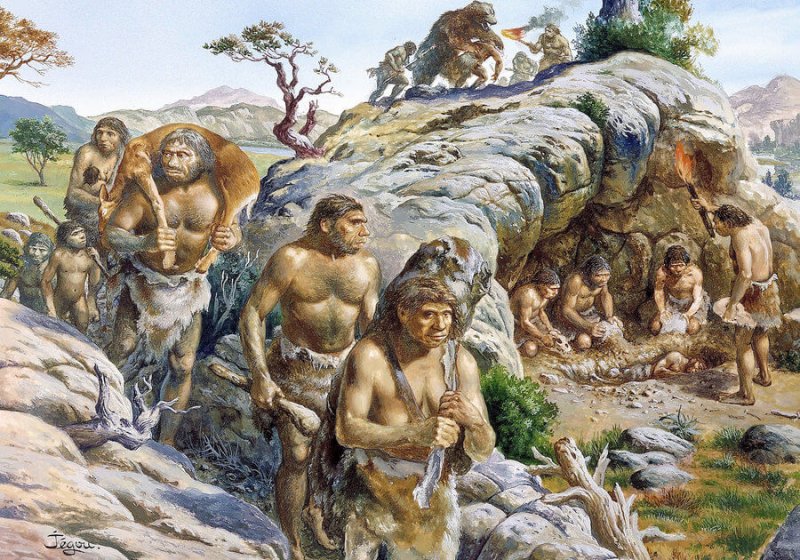What killed off the Neanderthals? It’s a big debate, and now a study says that no matter what the answer, they were doomed anyway. Our close evolutionary cousins enjoyed a long run in Europe and Asia, but they disappeared about 40,000 years ago after modern humans showed up from Africa. The search for an explanation has produced many theories including climate change, epidemics, or inability to compete with the modern humans, who may have had some mental or cultural edge.
…
Neither [Neanderthals nor Homo sapiens] was assumed to have any inherent advantage, but there was one crucial difference: Unlike the Neanderthals, the modern humans were supplemented by reinforcements coming in from Africa. It wasn’t a huge wave, but rather “a tiny, tiny trickle of small bands,” [researcher Oren] Kolodny said. Still, that was enough to tip the balance against the Neanderthals. They generally went extinct when the simulation was run more than a million times under a variety of assumptions.
…
Experts in human origins said the paper could help scientists pin down the various factors that led to the Neanderthals’ demise. It fits in with other recent attempts to explain the extinction without assuming behavioral differences between Neanderthals and our ancestors.
[Editor’s note: Read the full study]
The GLP aggregated and excerpted this blog/article to reflect the diversity of news, opinion, and analysis. Read full, original post: Slow flow of human immigration may have doomed Neanderthals































